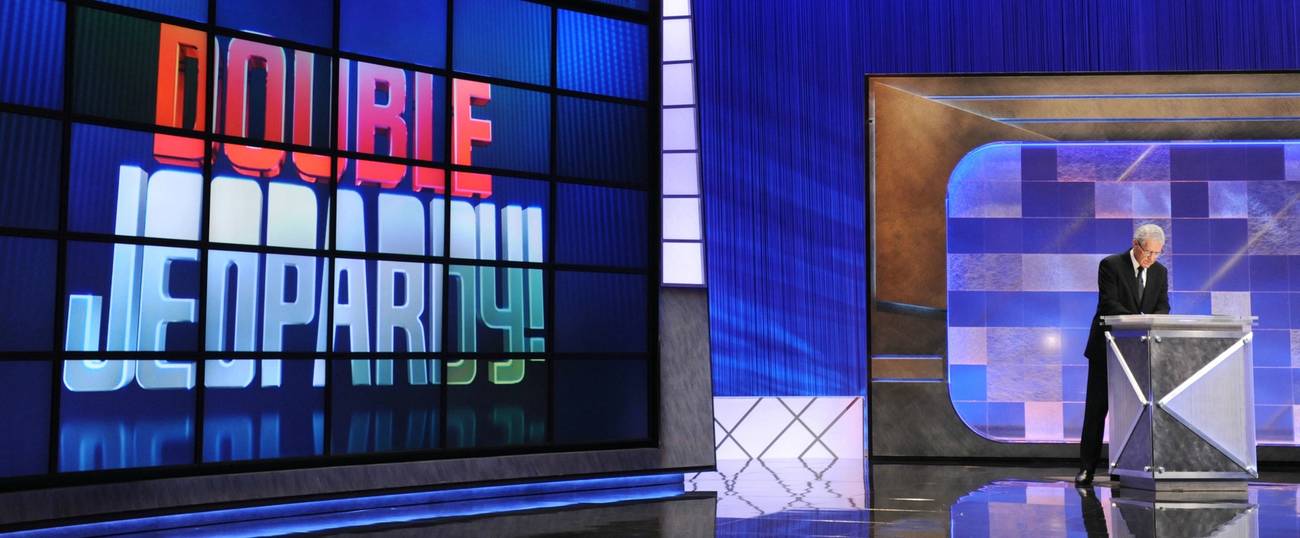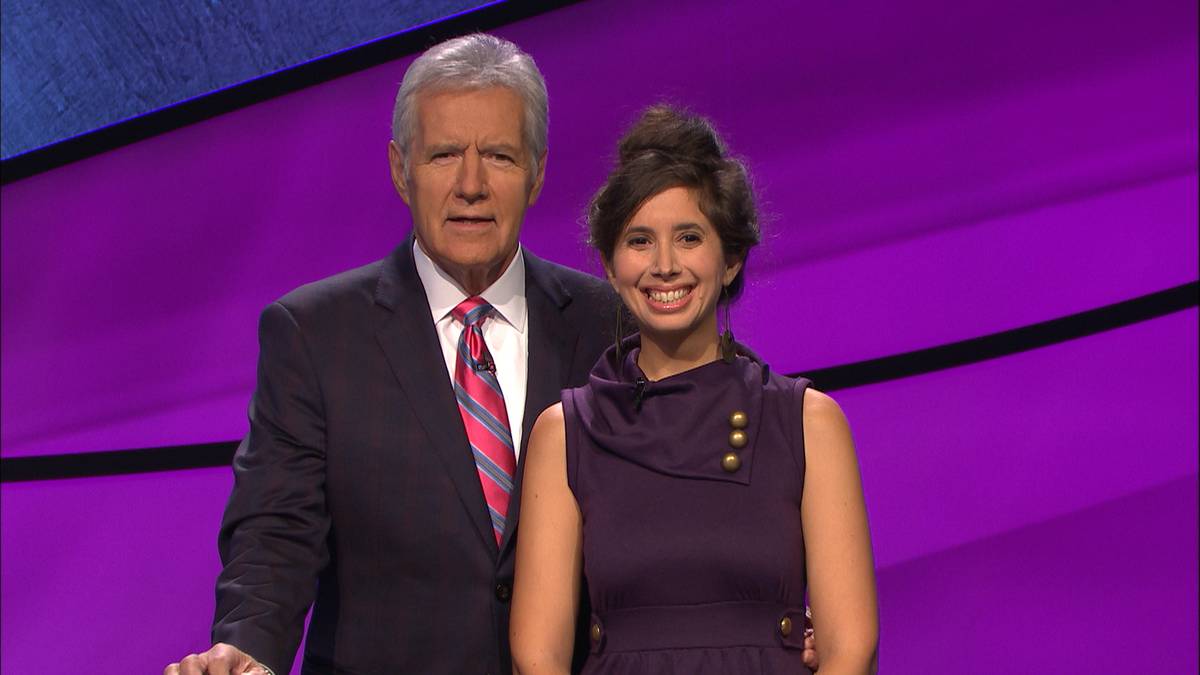Learning Life’s Hardest Lessons—in the Form of a Question
When my life-long dream of being a contestant on ‘Jeopardy!’ became a reality, things quickly went south. Then, Alex Trebek picked me right up.




My family considers Seinfeld to be the quintessential Jewish television show, but I think we’ve misplaced that honor: It clearly belongs to Jeopardy! What other show not only glorifies but rewards hours of study, the instant regurgitation of arcane facts, and intense, merit-based competition? Even the rituals my family developed around watching this holy half-hour—when to turn on the television, when to talk, when to stay absolutely silent—took on an increasingly religious nature, repeated five times a week, year after year after year. So when I got the call last August and learned that, after years of taking the entrance test, I had been chosen to be a Jeopardy! contestant, it really did feel like I had been, well, chosen.
With the weight of family honor on my shoulders, I began to prepare for what I can only now understand as a surreal second bat mitzvah, a televised coming-of-age encompassing the sublime, the tragicomic, and everything in between. Jeopardy! wasn’t conceived in a Merv Griffin-run yeshiva, but it probably should have been.
I studied day and night. There was the feverish memorization—not of Torah but of British monarchs and Major League Baseball stadiums and famous submarines. The rehearsal for the personal spotlight—not a d’var Torah, but an interview with the sage himself, Alex Trebek. And, of course, I searched for the right outfit to wear that would thus live on in the long memory of television: My appearance on the game show last night was one the few things in this unpredictable game that I figured I could control.
One month later in Los Angeles, I stood power-posing on the Jeopardy! bima, buzzer in hand, ready to make my parents proud. Trebek kicked off the show and I cruised to an early lead over the two-time returning champion, falling into a smooth signaling rhythm and nailing questions on foreign languages and history. It felt almost too good to be true. And it was. In my own peculiar, televised Bildungsroman, I was about to reach a distressing turning point.
First, the camera-stopping slip-up: I spilled about half of my water bottle onto my carefully chosen dress during the first commercial break and was immediately hurried off-stage. While the fabric withstood the heat from a hair dryer-wielding make-up artist, my confidence began to melt away ever so slightly.
But the show continued and so did I. Harnessing some Jeopardy! game theory, I successfully hunted down the round’s only Daily Double in my favorite category: history. The audience applauded and, feeling good about the thousands of dollars separating me from my competitors, I bet half of my total. Trebek read the clue: “Name the military retreat of Mao Zedong and his followers in the mid-1930s.” This was easy; I had breezed through the Chinese history section of my trivia book the night before.
Now, wait—was it the Great March? The Long Walk? Potential combinations of adjectives and nouns bombarded my brain and then I just stared, wide-eyed, silent. As if in a dream, I heard Trebek say from a distance, “Oh, I’m sorry, it was the Long March.” With my score cut in half, and no gabbai to help me regain my footing, I never quite recovered.
That “Double Jeopardy” featured a category entirely devoted to shellfish only reinforced that the game was not going to end well for this Jew.
Next, the fall. Before the competition, I told myself I’d be satisfied with any outcome not involving a negative sign, but I never imagined I’d be barely clinging to the sunny side of $0 by the show’s end. How would I—let alone my family—handle this shanda?

An impenetrable Final Jeopardy blindsided all of us. I took third place, the now three-time winner added thousands more to his name, and the Jeopardy! producers hustled we three dazed contestants center stage for forced b-roll banter. It was then, amid a day centered entirely around “knowledge,” that I heard the wisest words of all. The kind of wisdom garnered from witnessing decades of human triumph and tragedy in a small, cold sound stage. With the cameras rolling, Alex looked directly at me and my bruised ego and said, “You know, shit happens.”
I can’t remember what my rabbi said to me at my bat mitzvah back in 1997. It was likely wordier and much more dramatic, and it certainly didn’t contain profanity. But I’ll never forget that brief teaching from Rav Alex. I don’t know a better way to sum up the process of becoming an adult than trying your best, failing utterly, picking yourself up, and moving on. Perhaps every b’nai mitzvah would be better served if, among the Hebrew and the halting speeches, everyone reserved one moment to just get real. To acknowledge that life doesn’t always go anyone’s way, that there’s no way to explain it, and that that’s OK.
And while Johnny Gilbert will never announce my name and “champion” in the same breath, I’ve made my peace. My family didn’t disown me—truthfully, they were thrilled I’d simply made it. I’ve been welcomed into the warm online community of former Jeopardy! contestants. And hey, there’s always Wheel of Fortune.
Sherri Cohen works in communications for a major global Jewish nonprofit and continues to search for that elusive trivia jackpot at bars across Brooklyn.